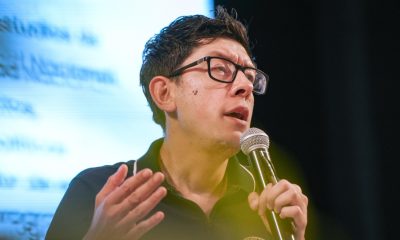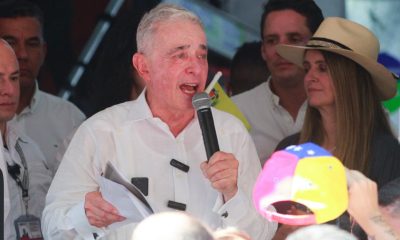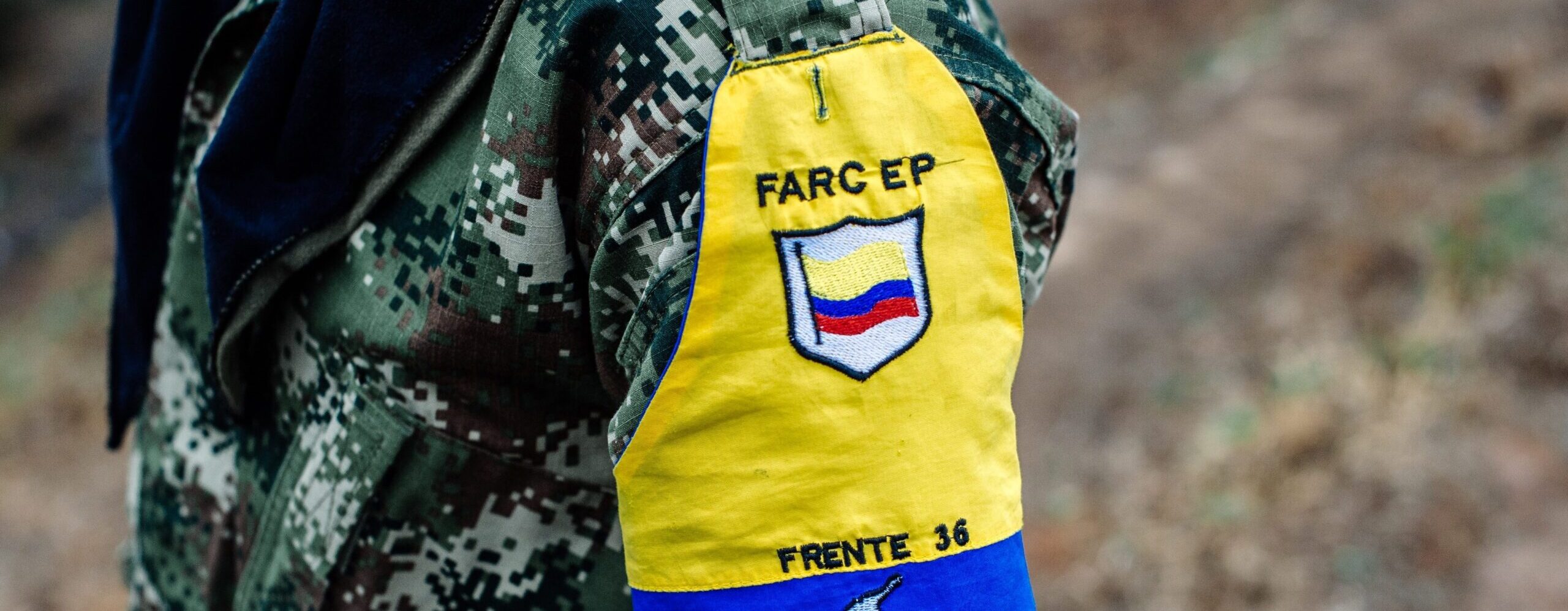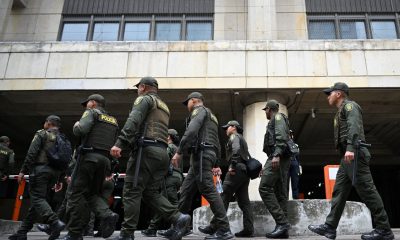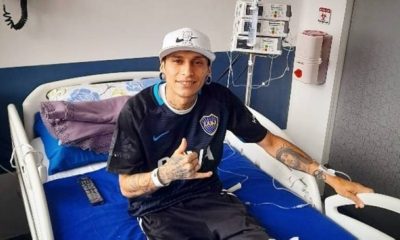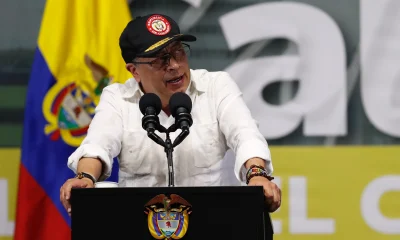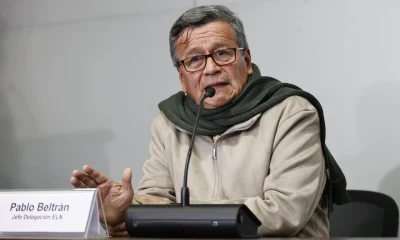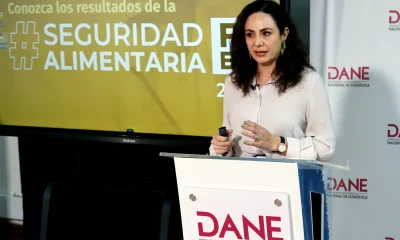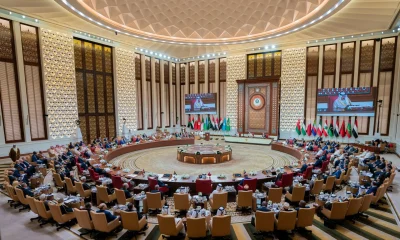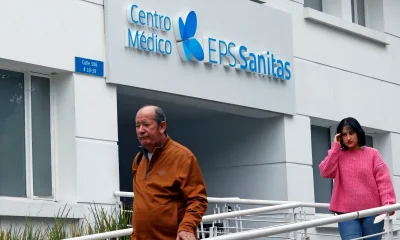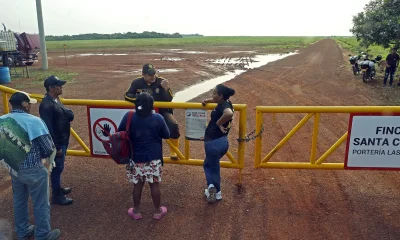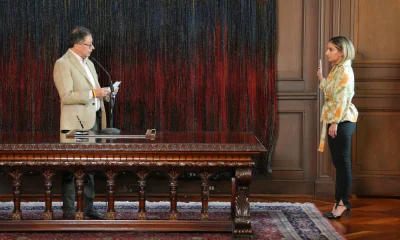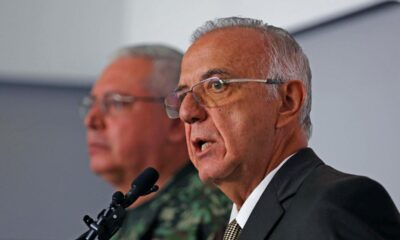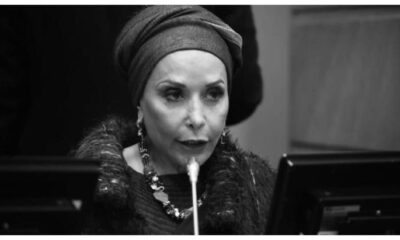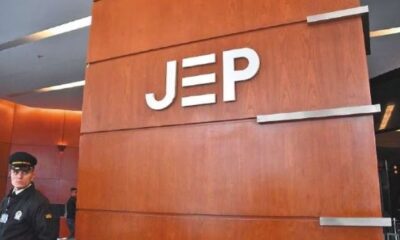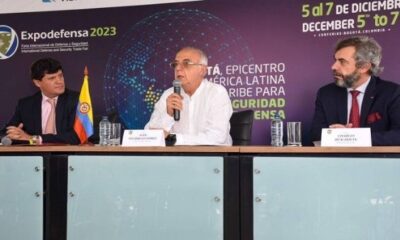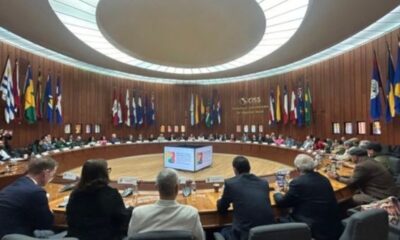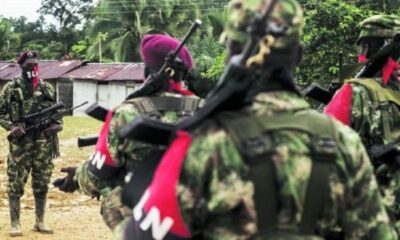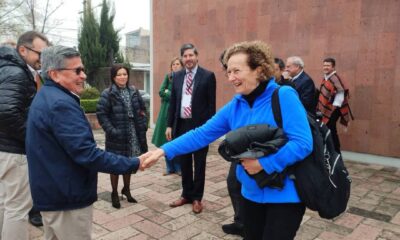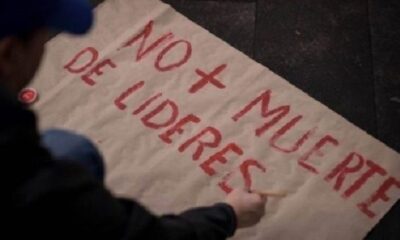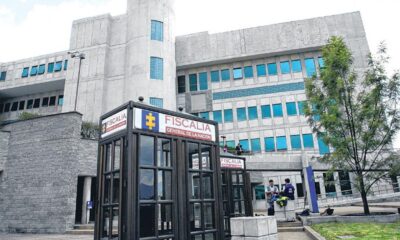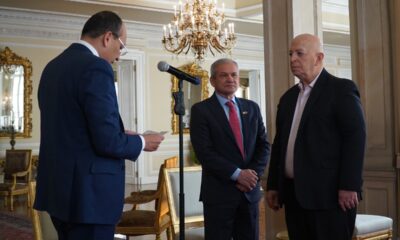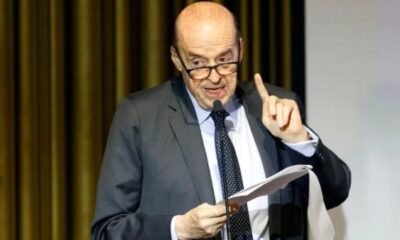International
Colombia resumes talks with powerful ELN guerrilla group
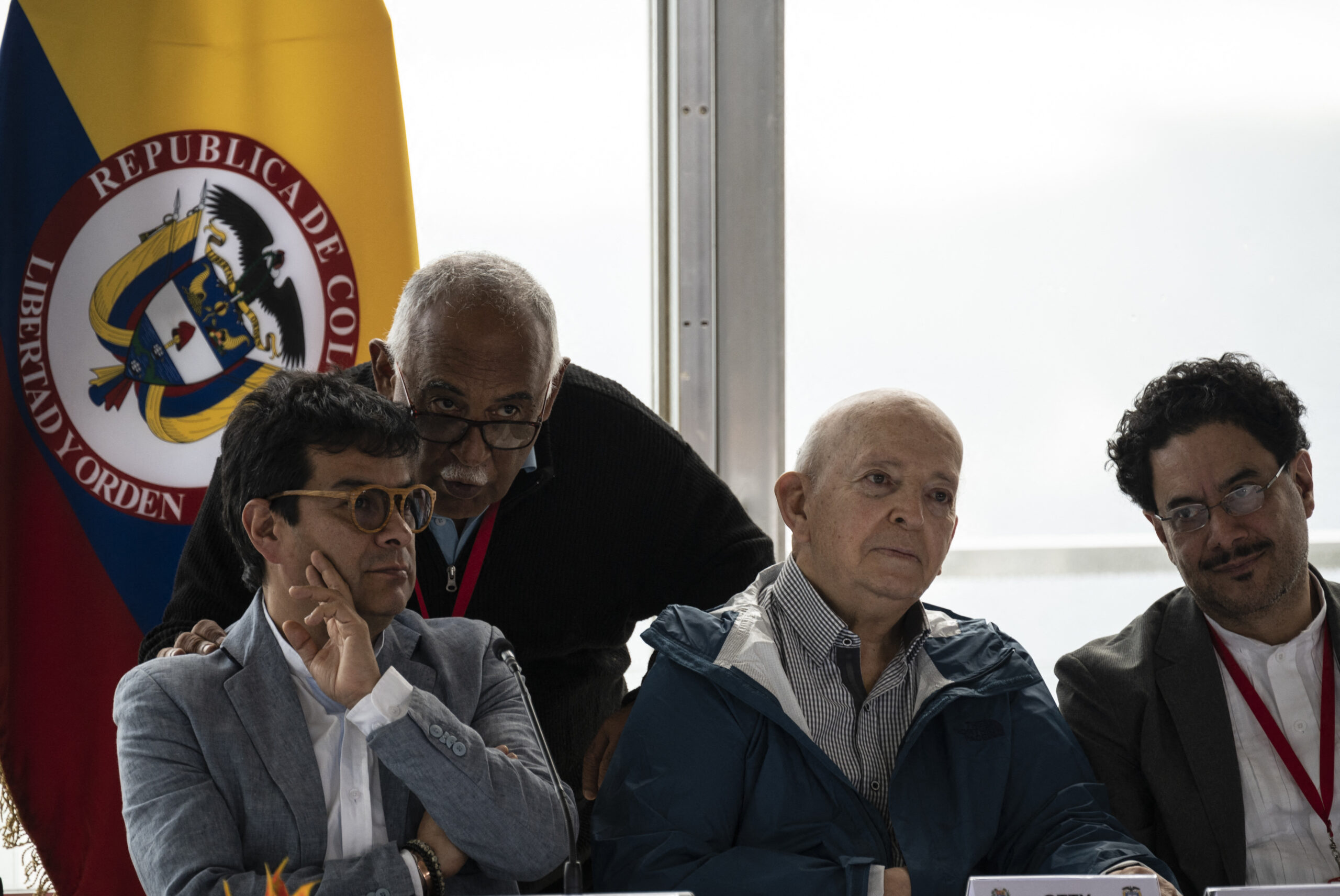
| By AFP |
Colombia’s government and the National Liberation Army (ELN), the last recognized rebel group in the country, resumed formal peace talks in Venezuela Monday for the first time since they were suspended in 2019.
The talks are a push by President Gustavo Petro, who in August became Colombia’s first-ever leftist leader, and has vowed a less bellicose approach to ending violence wrought by armed groups, including leftist guerrillas and drug traffickers.
In their first meeting, the parties agreed to “resume the dialogue process with full political and ethical will,” according to a joint statement.
They added that the talks aim to “build peace” and make “tangible, urgent, and necessary” changes, highlighting the need for “permanent compromises.”
The first round of talks will last 20 days.
Colombia has suffered more than half a century of armed conflict between the state and various groups of left-wing guerrillas, right-wing paramilitaries and drug traffickers.
The ELN started as a leftist ideological movement in 1964 before turning to crime, focusing on kidnapping, extortion, attacks and drug trafficking in Colombia and neighboring Venezuela.
It has around 2,500 members, about 700 more than it did when negotiations were last broken off. The group is primarily active in the Pacific region and along the 2,200-kilometer (1,370-mile) border with Venezuela.
Dialogue with the group started in 2016 under ex-president Juan Manuel Santos, who signed a peace treaty with the larger Marxist Revolutionary Armed Forces of Colombia (FARC) rebel group that subsequently abandoned its weapons and created a political party.
But the talks with the ELN were called off in 2019 by conservative former president Ivan Duque following a car bomb attack on a police academy in Bogota that left 22 people dead.
Petro — himself a former guerrilla — reached out to the ELN shortly after coming to power, as part of his “total peace” policy.
The ELN peace talks delegation spent four years based in Cuba, as they had been barred from returning to Colombia by the previous government.
They traveled to Venezuela last month, where the fresh round of talks was announced.
Colombian Defense Minister Ivan Velasquez warned that the negotiations do not imply a “suspension of operations” against the ELN.
“If there is an encounter with someone who has an arrest warrant, they must be captured… There is no ceasefire,” he said.
‘We all have to change’
Colombian peace commissioner Ivan Danilo Rueda hailed a “historic moment” for the country after the meeting.
“We are here honoring life, the lives of so many beings who are no longer here,” Rueda said. “Murdered, disappeared.”
ELN delegate Pablo Beltran said he hoped the dialogue would be “an instrument of change… and we hope we won’t fail.”
“In Colombia, we all have to change” and “overcome the dynamic of death,” he said.
Caracas is hosting the first meeting, and the talks will rotate between the other guarantors Cuba and Norway.
A statement from the guarantor nations said Monday’s meeting was “an important step to achieve peace.”
UN chief Antonio Guterres’s special envoy in Colombia, Carlos Ruiz Massieu, called on “the parties and Colombian society to take advantage of this historic opportunity.”
“I reiterate the support of the Secretary General @antonioguterres to this process,” he wrote on Twitter.
Venezuela’s President Nicolas Maduro hailed the process as “a message of hope for a peaceful Latin America and Caribbean,” at a rally in the capital.
International
Paraguay summons Brazilian ambassador over Itaipú espionage scandal
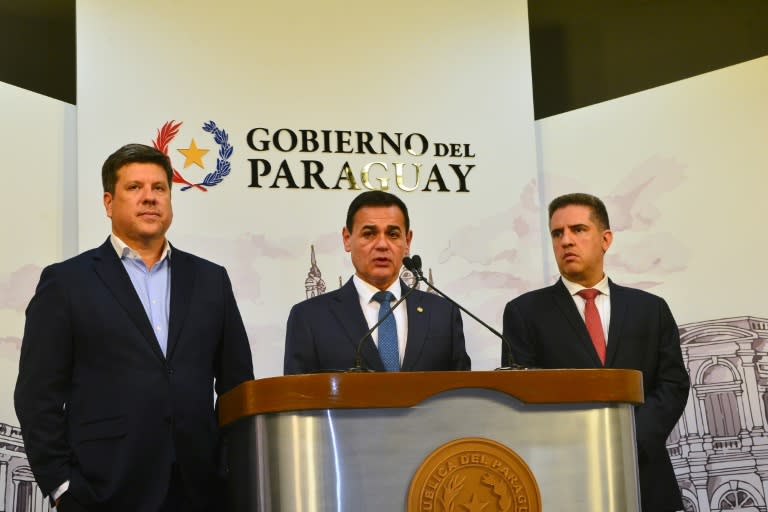
Paraguay summoned the Brazilian ambassador in Asunción on Tuesday to demand “explanations” and called its own representative in Brasília for consultations following Brazil’s acknowledgment of an espionage operation. The Brazilian government, led by President Luiz Inácio Lula da Silva, attributed the operation to the previous administration.
The surveillance effort aimed to uncover Paraguay’s position in now-suspended negotiations with Brazil regarding the pricing of electricity from the binational Itaipú hydroelectric plant, according to reports in the Brazilian press.
The Brazilian government “categorically denied any involvement in the intelligence operation,” stating in a Foreign Ministry communiqué on Monday that the espionage was carried out under former President Jair Bolsonaro’s administration (2019-2023).
“The operation was authorized by the previous government in June 2022 and was annulled by the interim director of the (state intelligence agency) ABIN on March 27, 2023, as soon as the current administration became aware of it,” Brazil’s government asserted.
Paraguay’s Foreign Minister Rubén Ramírez announced that Brazilian Ambassador José Antonio Marcondes de Carvalho was summoned “to provide detailed explanations” regarding the operation. Additionally, Paraguay recalled its diplomatic representative in Brasília “to report on aspects related to the intelligence activity conducted by Brazil regarding Paraguay’s government affairs.”
International
Elon Musk to step down as government advisor, per Trump insiders
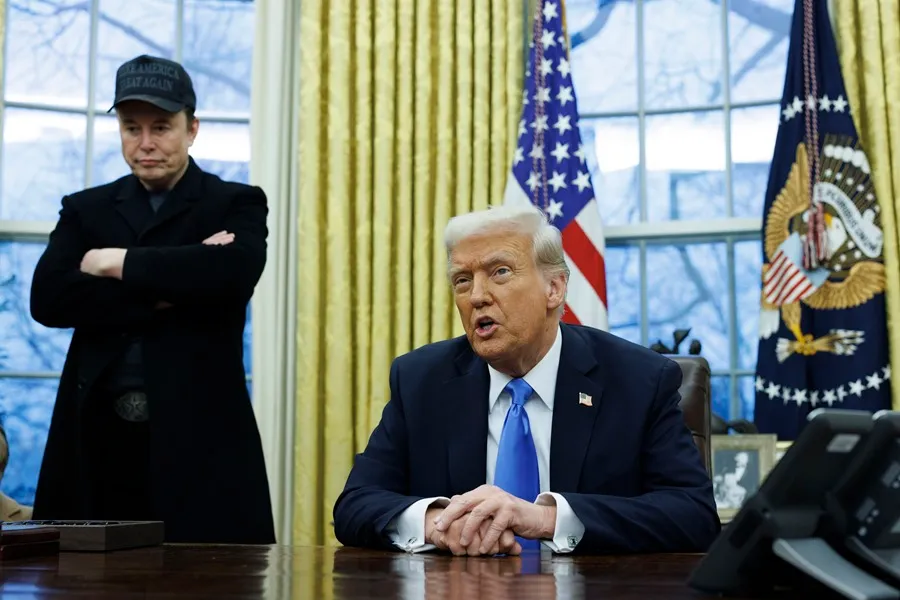
President Donald Trump has informed his inner circle that Elon Musk will be stepping down from his role as a government advisor, according to a report by Politico today.
Citing three individuals close to Trump, Politico states that the president is pleased with Musk’s leadership at the Department of Government Efficiency (DOGE), where he has implemented significant budget cuts. However, both have agreed that it is time for Musk to return to his businesses and support Trump from a different position outside the government.
A senior administration official told Politico that Musk will likely maintain an informal advisory role and continue to be an occasional visitor to the White House. Another source warned that anyone thinking Musk will completely disappear from Trump’s circle is “deluding themselves.”
According to the sources, this transition is expected to coincide with the end of Musk’s tenure as a “special government employee,” a temporary status that exempts him from certain ethics and conflict-of-interest regulations. This 130-day period is set to expire in late May or early June.
International
Milei vows to make Argentina so strong that Falkland Islanders “choose” to join

Argentine President Javier Milei reaffirmed his country’s claim over the Falkland Islands (known as the Islas Malvinas in Argentina) and praised the role of the nation’s armed forces during a ceremony marking the “Veterans and Fallen Soldiers of the Malvinas War Day,” commemorating 43 years since the 1982 conflict with the United Kingdom.
Argentina continues to assert sovereignty over the islands, arguing that Britain unlawfully seized them in 1833.
“If sovereignty over the Malvinas is the issue, we have always made it clear that the most important vote is the one cast with one’s feet. We hope that one day, the Malvinas residents will choose to vote with their feet and join us,” Milei stated.
“That is why we aim to become a global power—so much so that they would prefer to be Argentine, making deterrence or persuasion unnecessary. This is why we have embarked on a path of liberation, working to make Argentina the freest country in the world and once again the nation with the highest GDP per capita on the planet,” he added.
-

 Central America3 days ago
Central America3 days agoU.S. Homeland Security Secretary urges Mexico to strengthen Guatemala border
-

 Central America3 days ago
Central America3 days agoPanama grants Martinelli 72-hour extension to travel to Nicaragua
-

 International1 day ago
International1 day agoParaguay summons Brazilian ambassador over Itaipú espionage scandal
-

 Central America4 days ago
Central America4 days agoPanama police clarifies that Interpol alert for Martinelli is still pending
-

 International3 days ago
International3 days agoTrump urges Putin to reach peace deal
-

 International4 days ago
International4 days agoDeportation flight lands in Venezuela; government denies criminal gang links
-

 Sports1 day ago
Sports1 day agoFilipe Luis debuts as coach in Copa Libertadores with Flamengo
-

 Central America1 day ago
Central America1 day agoGuatemalan police officer killed in mob riots over baby kidnapping
-

 International1 day ago
International1 day agoElon Musk to step down as government advisor, per Trump insiders
-

 Sports1 day ago
Sports1 day agoVenezuela investigates 18 baseball players seeking asylum in Spain
-

 International1 day ago
International1 day agoMilei vows to make Argentina so strong that Falkland Islanders “choose” to join
-

 International1 day ago
International1 day agoICE agent’s arrest of suspect sparks controversy in Boston
-

 International1 day ago
International1 day agoÓscar Arias: Trump’s trade policies are a step backward


















